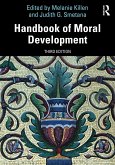Outstanding features include:
- Reviews the development of self and emotional regulation from infancy through adolescence.
- Contributors from various countries and backgrounds provide an integrative review of the literature to guide the direction of future research.
- Features contributions from those who have had a strong impact on self-regulation research.
- Reviews research on developmental disorders that have implications for self-regulation.
There are four sections. Section one introduces the development of self- and emotional regulation. This section reviews how self-regulation adapts based on personal and culturally-based goals and how individual differences predispose some to behavior disorders. Socialization influences are examined including a look at when typical regulation processes go awry. Section 2 examines physiological and brain processes as they relate to the development of typical and atypical processes, along with neurocognitive development of performance monitoring and how these processes change over time, cortical activation differences, and behavioral and electrocortical measures of attentional bias. Section 3 reviews the development of self-regulation and mastery motivation including a review of the Dimensions of Mastery Questionnaire (DMQ), cross-national comparisons, and what the DMQ can tell us about self-regulation. The section concludes with a look at the development of self-regulation and mastery motivation in individuals with a developmental disability. Section 4 examines self-regulation in atypical development and evidence-based treatment approaches in children with ADHD, autism, and Down syndrome.
This book is intended for researchers, graduate students, and practitioners in psychology, neuroscience, human development, and education interested in the development of self and emotional regulatory processes.
Dieser Download kann aus rechtlichen Gründen nur mit Rechnungsadresse in A, B, BG, CY, CZ, D, DK, EW, E, FIN, F, GR, HR, H, IRL, I, LT, L, LR, M, NL, PL, P, R, S, SLO, SK ausgeliefert werden.









